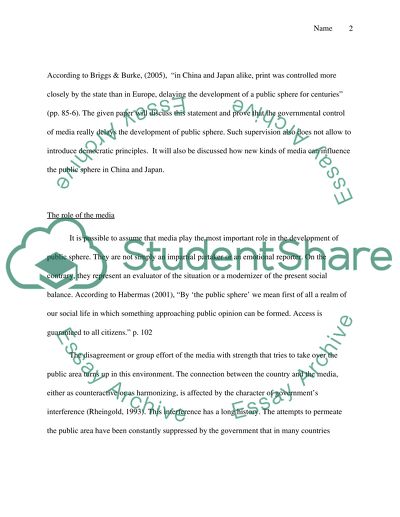Cite this document
(“Public sphere in China and japan Term Paper Example | Topics and Well Written Essays - 1500 words”, n.d.)
Retrieved from https://studentshare.org/miscellaneous/1556409-public-sphere-in-china-and-japan
Retrieved from https://studentshare.org/miscellaneous/1556409-public-sphere-in-china-and-japan
(Public Sphere in China and Japan Term Paper Example | Topics and Well Written Essays - 1500 Words)
https://studentshare.org/miscellaneous/1556409-public-sphere-in-china-and-japan.
https://studentshare.org/miscellaneous/1556409-public-sphere-in-china-and-japan.
“Public Sphere in China and Japan Term Paper Example | Topics and Well Written Essays - 1500 Words”, n.d. https://studentshare.org/miscellaneous/1556409-public-sphere-in-china-and-japan.


